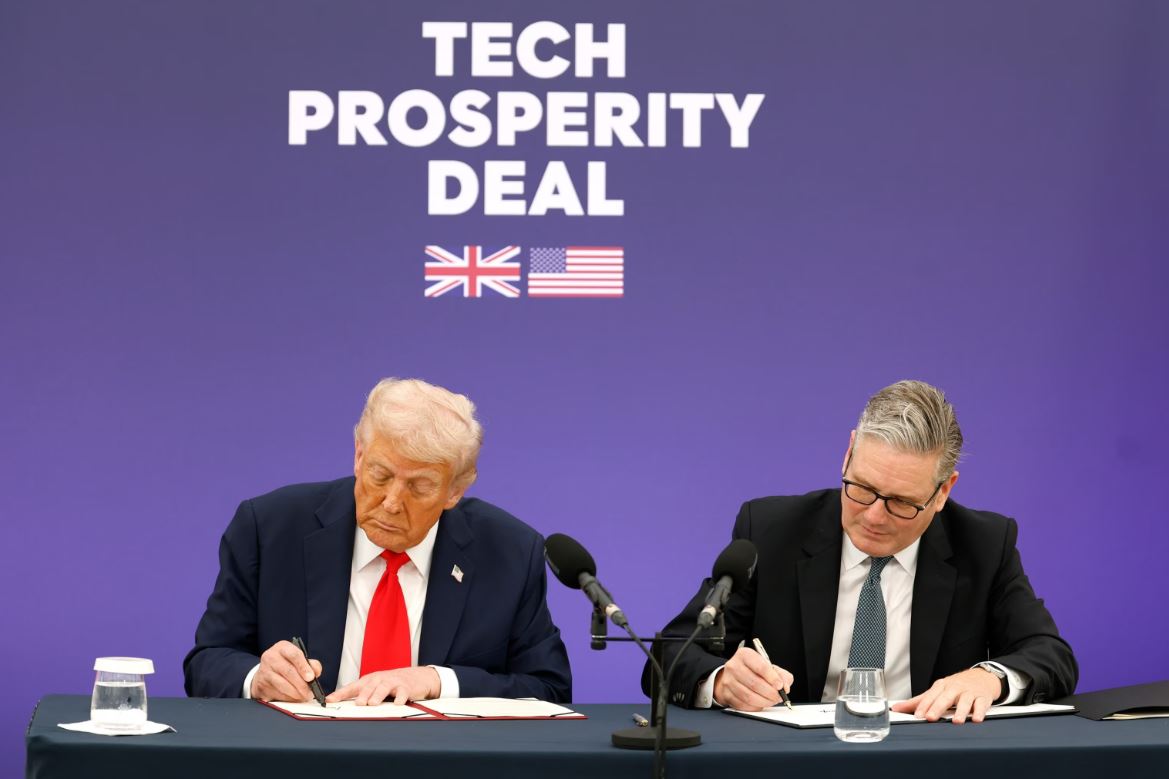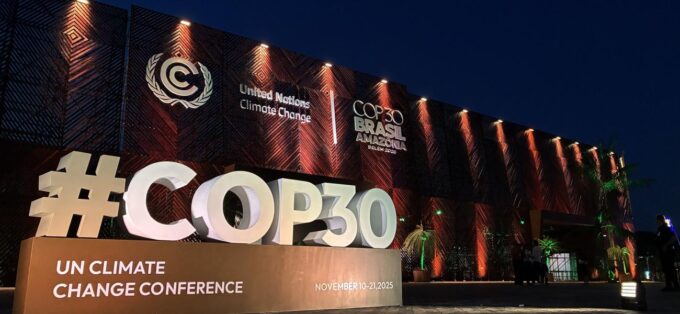CHEQUERS, England 18/09/25
In a high-profile show of unity, U.S. President Donald Trump and British Prime Minister Keir Starmer have vowed to strengthen the transatlantic bond with a sweeping package of trade and technology commitments. Their announcement, delivered during Trump’s state visit to London, was pitched as a turning point in the “special relationship” — but behind the headlines lies a complex mix of opportunity, risk, and political calculation.
The centrepiece is a “Tech Prosperity Deal” that promises to reshape Britain’s economic landscape. U.S. tech giants Microsoft and Google, backed by investment powerhouse Blackstone, pledged a staggering £150 billion (US$200 billion) investment package in the U.K. The money will bankroll AI data centres, quantum research hubs, and even civil nuclear projects — with the promise of thousands of new jobs. For a U.K. government desperate to prove its post-Brexit relevance, this is nothing short of a political prize.
But the deal is not purely about prosperity. It is also about power. By tying its future to American investment and innovation, Britain is betting heavily on Washington’s lead in technology and energy. Trump, for his part, framed the partnership as evidence of an “unbreakable bond,” while Starmer cast it as Britain stepping back onto the global stage. Yet, behind the smiles, both leaders know the arrangement locks London into a tech future largely dictated by U.S. corporate interests.
On trade, the pledges were more modest. Tariffs on cars and aerospace goods will be eased, and market access for agricultural products will improve. But a full free-trade deal remains elusive, with unresolved disputes hanging in the balance. The political choreography was designed to signal progress, but in practice the trade commitments amount to incremental steps rather than a grand realignment.
The risks are clear. Regulatory questions around AI, data privacy, and safety standards could become flashpoints.

Will Britain bend its regulatory frameworks to accommodate Silicon Valley giants? Will ordinary industries — particularly in agriculture and small manufacturing — be left vulnerable in the rush to secure American capital? Already, some U.K. business leaders are warning that standards and sovereignty cannot be bargained away in pursuit of foreign investment.
What cannot be denied, however, is the scale of the moment. Rarely has the U.S.–U.K. relationship been so heavily defined by the technologies of tomorrow. Trump and Starmer are gambling that their deal will deliver jobs, security, and renewed global clout. But they are also binding their nations’ futures together in ways that may be difficult to untangle — especially if political winds shift in either Washington or London.
This “special relationship,” often invoked and sometimes overstated, has now taken a sharp turn into the digital age. Whether it strengthens both countries or leaves them exposed to new dependencies will depend not on speeches in London, but on the hard realities of implementation in the years ahead.
White Horse Daily analysis
The US–UK Tech Prosperity Deal, hailed as a landmark £150 billion (US$200 billion) investment in AI, quantum computing, and nuclear energy, could catapult Britain into the forefront of global technology—but it comes with strings attached. While thousands of jobs and cutting-edge innovation are promised, the deal locks London into a future heavily influenced by U.S. corporate and strategic priorities, raising urgent questions about regulatory sovereignty, trade fairness, and long-term dependency. Incremental gains on tariffs and market access offer a veneer of progress, yet unresolved disputes and domestic industry concerns linger, particularly in agriculture and small manufacturing. Ultimately, the deal’s legacy will hinge not on headlines or press conferences, but on whether Britain can harness the economic boost while safeguarding its autonomy—or whether this “special relationship” becomes a gilded cage of opportunity and obligation.











Leave a comment